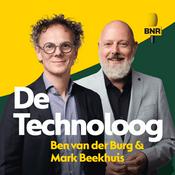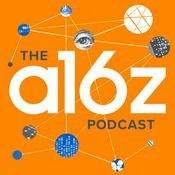42 afleveringen

Nested Learning: The Illusion of Deep Learning Architectures
14-11-2025 | 13 Min.
Why do today's most powerful Large Language Models feel... frozen in time? Despite their vast knowledge, they suffer from a fundamental flaw: a form of digital amnesia that prevents them from truly learning after deployment. We’ve hit a wall where simply stacking more layers isn't the answer.This episode unpacks a radical new paradigm from Google Research called "Nested Learning," which argues that the path forward isn't architectural depth, but temporal depth.Inspired by the human brain's multi-speed memory consolidation, Nested Learning reframes an AI model not as a simple stack, but as an integrated system of learning modules, each operating on its own clock. It's a design principle that could finally allow models to continually self-improve without the catastrophic forgetting that plagues current systems.This isn't just theory. We explore how this approach recasts everything from optimizers to attention mechanisms as nested memory systems and dive into HOPE, a new architecture built on these principles that's already outperforming Transformers. Stop thinking in layers. Start thinking in levels. This is how we build AI that never stops learning.In this episode, you will discover:(00:13) The Core Problem: Why LLMs Suffer from "Anterograde Amnesia"(02:53) The Brain's Blueprint: How Multi-Speed Memory Consolidation Solves Forgetting(03:49) A New Paradigm: Deconstructing Nested Learning and Associative Memory(04:54) Your Optimizer is a Memory Module: Rethinking the Fundamentals of Training(08:00) The "Artificial Sleep Cycle": How Exclusive Gradient Flow Protects Knowledge(08:30) From Theory to Reality: The HOPE & Continuum Memory System (CMS) Architecture(10:12) The Next Frontier: Moving from Architectural Depth to True Temporal Depth

Memento: Fine-tuning LLM Agents without Fine-tuning LLMs
01-11-2025 | 18 Min.
What if you could build AI agents that get smarter with every task, learning from successes and failures in real-time—without the astronomical cost and complexity of constant fine-tuning? This isn't a distant dream; it's a new paradigm that could fundamentally change how we develop intelligent systems.The current approach to AI adaptation is broken. We're trapped between rigid, hard-coded agents that can't evolve and flexible models that demand cripplingly expensive retraining. In this episode, we dissect "Memento," a groundbreaking research paper that offers a third, far more elegant path forward. Inspired by human memory, Memento equips LLM agents with an episodic "Case Bank," allowing them to learn from experience just like we do.This isn't just theory. We explore the stunning results where this method achieves top-1 performance on the formidable GAIA benchmark and nearly doubles the effectiveness of standard approaches on complex research tasks. Forget brute-force parameter updates; this is about building AI with wisdom.Press play to discover the blueprint for the next generation of truly adaptive AI.In this episode, you will level up on:(02:15) The Core Dilemma: Why the current methods for creating adaptable AI agents are fundamentally unsustainable and what problem Memento was built to solve.(05:40) A New Vision for AI Learning: Unpacking the Memento paradigm—a revolutionary, low-cost approach that lets agents learn continually without altering the base LLM.(09:05) The Genius of Case-Based Reasoning: A simple explanation of how Memento's "Case Bank" works, allowing an AI to recall past experiences to make smarter decisions today.(14:20) The Proof Is in the Performance: A look at the state-of-the-art results on benchmarks like GAIA and DeepResearcher that validate this memory-based approach.(18:30) The "Less Is More" Memory Principle: A counterintuitive discovery on why a small, curated set of high-quality memories outperforms a massive one.(21:10) Your Blueprint for Building Smarter Agents: The key architectural takeaways and why this memory-centric model offers a scalable, efficient path for creating truly generalist AI.

MemGPT: Towards LLMs as Operating Systems
01-11-2025 | 18 Min.
Have you ever felt the frustration of an LLM losing the plot mid-conversation, its brilliant insights vanishing like a dream? This "goldfish memory"—the limited context window—is the Achilles' heel of modern AI, a fundamental barrier we've been told can only be solved with brute-force computation and astronomically expensive, larger models.But what if that's the wrong way to think?This episode dives into MemGPT, a revolutionary paper that proposes a radically different, "insanely great" solution. Instead of just making memory bigger, we make it smarter by borrowing a decades-old, brilliant concept from classic computer science: the operating system. We explore how treating an LLM not just as a text generator, but as its own OS—complete with virtual memory, a memory hierarchy, and interrupt-driven controls—gives it the illusion of infinite context.This isn't just an incremental improvement; it's a paradigm shift. It's the key to building agents that remember, evolve, and reason over vast oceans of information without ever losing the thread. Stop accepting the limits of today's models and level up your understanding of AI's architectural future.In this episode, you'll discover:(00:22) The Achilles' Heel: Why simply expanding context windows is a costly and inefficient dead end.(02:22) The OS-Inspired Breakthrough: Unpacking the genius of applying virtual memory concepts to AI.(04:06) Inside the Virtual RAM: How MemGPT intelligently structures its "mind" with a read-only core, a self-editing scratchpad, and a rolling conversation queue.(05:05) The "Self-Editing" Brain: Witness the LLM autonomously updating its own knowledge, like changing a "boyfriend" to an "ex-boyfriend" in real-time.(08:40) The LLM as Manager: How "memory pressure" alerts and an OS-like control flow turn the LLM from a passive tool into an active memory manager.(10:14) The Stunning Results: The proof is in the data—how MemGPT skyrockets long-term recall accuracy from a dismal 32% to a staggering 92.5%.(13:12) Cracking Multi-Hop Reasoning: Learn how MemGPT solves complex, nested problems where standard models completely fail, hitting 0% accuracy.(15:51) The Future Unlocked: A glimpse into the next generation of proactive, autonomous AI agents that don't just respond, but think, plan, and act.

DeepSeek-OCR: Contexts Optical Compression
24-10-2025 | 13 Min.
The single biggest bottleneck for Large Language Models isn't intelligence—it's cost. The quadratic scaling of self-attention makes processing truly long documents prohibitively expensive, a fundamental barrier that has stalled progress. But what if the solution wasn't more compute, but a radically simpler, more elegant idea?In this episode, we dissect a groundbreaking paper from DeepSeek-AI that presents a counterintuitive yet insanely great solution: Contexts Optical Compression. We explore the astonishing feasibility of converting thousands of text tokens into a handful of vision tokens—effectively compressing text into a picture—to achieve unprecedented efficiency.This isn't just theory. We go deep on the novel DeepEncoder architecture that makes this possible, revealing the specific engineering trick that allows it to achieve near-lossless compression at a 10:1 ratio while outperforming models that use 9x more tokens. If you're wrestling with context length, memory limits, or soaring GPU bills, this is the paradigm shift you've been waiting for.In this episode, you will discover:(02:10) The Quadratic Tyranny: Why long context is the most expensive problem in AI today and the physical limits it imposes.(06:45) The Counterintuitive Leap: Unpacking the "Big Idea"—compressing text by turning it back into an image, and why it's a game-changer.(11:20) Inside the DeepEncoder: A breakdown of the brilliant architecture that serially combines local and global attention with a 16x compressor to achieve maximum efficiency.(17:05) The 10x Proof: We analyze the staggering benchmark results: achieving over 96% accuracy at 10x compression and still retaining 60% at a mind-bending 20x.(23:50) Beyond Simple Text: How this method enables "deep parsing"—extracting structured data from charts, chemical formulas, and complex layouts automatically.(28:15) A Glimpse of the Future: The visionary concept of mimicking human memory decay to unlock a path toward theoretically unlimited context.

A Definition of AGI
23-10-2025 | 19 Min.
For decades, Artificial General Intelligence has been a moving target, a nebulous concept that shifts every time a new AI masters a complex task. This ambiguity fuels unproductive debates and obscures the real gap between today's specialized models and true human-level cognition.This episode changes everything.We unpack a groundbreaking, quantifiable framework that finally stops the goalposts from moving. Grounded in the most empirically validated model of human intelligence (CHC theory), this approach introduces a standardized "AGI Score"—a single number from 0 to 100% that measures an AI against the cognitive versatility of a well-educated adult.The scores are in, and they are astonishing. While GPT-4 scores 27%, the next generation leaps to 58%, revealing dizzying progress. But the total score isn't the real story. The true revelation is the "jagged profile" of AI's capabilities—a shocking disparity between superhuman brilliance and profound cognitive deficits.This is your guide to understanding the true state of AI, moving beyond the hype to see the critical bottlenecks and the real path forward.In this episode, you will discover:(00:59) The AGI Scorecard: How a new framework, based on 10 core cognitive domains, provides a concrete, measurable definition of AGI for the first time.(02:56) The Shocking Results: Unpacking the AGI scores for GPT-4 (27%) and the next-gen GPT-5 (58%), revealing both massive leaps and a substantial remaining gap.(08:37) The Jagged Frontier & The 0% Problem: The most critical insight—why today's AI scores perfectly in math and reading yet gets a 0% in Long-Term Memory Storage, the system's most significant bottleneck.(13:12) "Capability Contortions": The non-obvious ways AI masks its fundamental flaws, using enormous context windows and RAG to create a brittle illusion of general intelligence.(16:21) AGI vs. Replacement AI: The provocative final question—can an AI become economically disruptive long before it ever achieves a perfect 100% AGI score?
Meer Technologie podcasts
Trending Technologie -podcasts
Over GenAI Level UP
Luister naar GenAI Level UP, De Grote Tech Show | BNR en vele andere podcasts van over de hele wereld met de radio.net-app

Ontvang de gratis radio.net app
- Zenders en podcasts om te bookmarken
- Streamen via Wi-Fi of Bluetooth
- Ondersteunt Carplay & Android Auto
- Veel andere app-functies
Ontvang de gratis radio.net app
- Zenders en podcasts om te bookmarken
- Streamen via Wi-Fi of Bluetooth
- Ondersteunt Carplay & Android Auto
- Veel andere app-functies


GenAI Level UP
download de app,
luisteren.





































